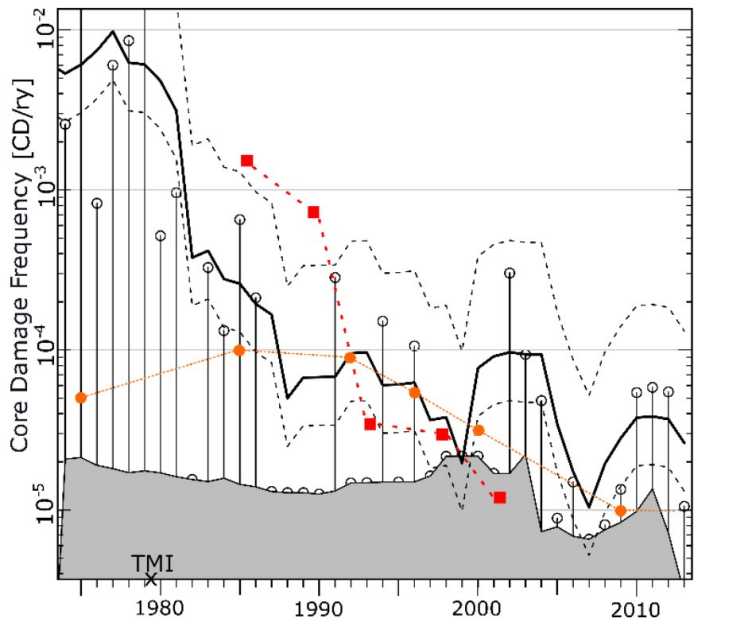Nuclear energy

Top objective: To answer ‘big picture’ questions about safety/risk as well as new technologies and opportunities in nuclear energy.
- E.g., Analysis of trends (quantifying safety improvement), and differences between fleets and designs. Also, quantification of the accident externality.
- Providing sound and unbiased risk information on this crucial issue.
- Support intensified learning from experienced incidents in the sector: The IAEA cited ‘lost learning opportunity’ due to lack of analysis of ‘low level events and near accidents’. Repetition of similar errors over time (‘fore-runners’) show this.
- Generic PSA research and development
- Integrative approach to energy portfolios accounting for constraints from physics, thermodynamics, engineering (in particular grid), demographics and economics.
See our comprehensive database on ‘adverse events’ in nuclear energy, and more detailed risk information at: http://er-nucleardb.ethz.ch. (Please read ‘Database summary’ and ‘Info’ on risk in nuclear power, at that link).
- Expert-reviewed event descriptions, annotations incl. INES scores, and references.
- The database is a living work in progress, and will be enhanced. You can help! Please notify us with corrections, new events, etc. at .
- We have used the data for analysis of risk [1-4].
Philosophy: Learning from all relevant experience, and exploiting all relevant means is important. Methods should be optimized to answer our top objective.
- Experience can be pooled to draw broad conclusions. Views about what constitutes “relevant experience” are often myopic (snowflake fallacy: “All units are incomparably different from others, as well as from themselves over time”.)
Means:
1) Analysis of accident precursors: measuring ‘near-miss’ risk-significance regardless of ultimate outcome (binary outcome measures are not enough!).
2) Development of simplified and harmonized models for precursor analysis [4], providing a standard and efficiently applicable technique for approximate risk assessment of events.
3) Continued development and exploitation of event data.
Team:
Prof. Didier Sornette, Prof. Wolfgang Kröger, Dr. Spencer Wheatley, and Ali Ayoub.